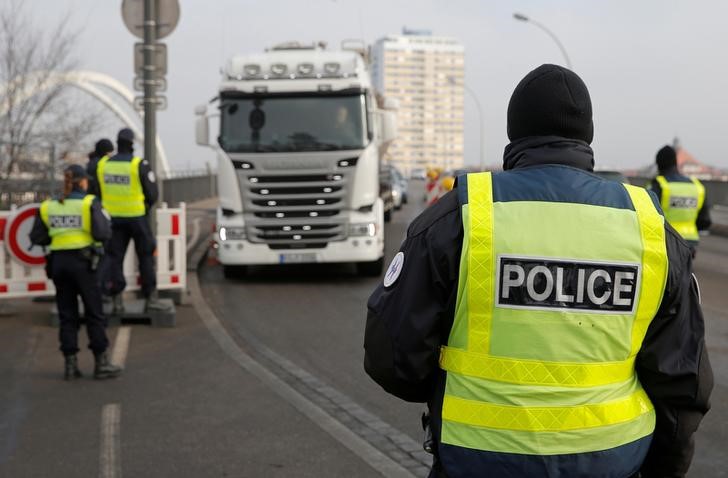By Gabriela Baczynska
LUXEMBOURG (Reuters) - Border controls inside what should normally be Europe's cherished zone of free travel are here to stay for now, EU ministers said on Friday, citing continued terrorist threats and the need to control migration.
Germany, France, Austria, Sweden, Denmark and Norway told their Schengen zone peers they will extend until mid-May internal frontier checks first put in place in 2015 to counter unprecedented levels of migration and Islamist attacks.
At a meeting of European Union interior ministers in Luxembourg, Germany's Thomas de Maiziere said Berlin was still committed to freedom of movement, "but at the moment we cannot do without checks."
"The reason is the tense security situation in Europe with regards to international terrorism and the still inadequate protection of our external borders," he said.
France, which imposed emergency border controls after Islamist attackers killed 130 people in Paris in November, 2015, also wants to keep them in place.
"The issues around terrorism are still extremely important for us," French Interior Minister Gerard Colomb said. "France wants to extend border controls by six months."
The other four countries announced the same move, citing "serious threat to public policy or internal security" before the authorisation to impose the border checks expires next month.
Nearly all EU states consider the free-travel Schengen area as a major benefit of decades of European integration, and are keen to avoid disruptions to travel and trade.

But border checks have become the new reality over the last two years and the bloc is working on changing its laws to allow for the introduction of such measures more easily and for longer periods.